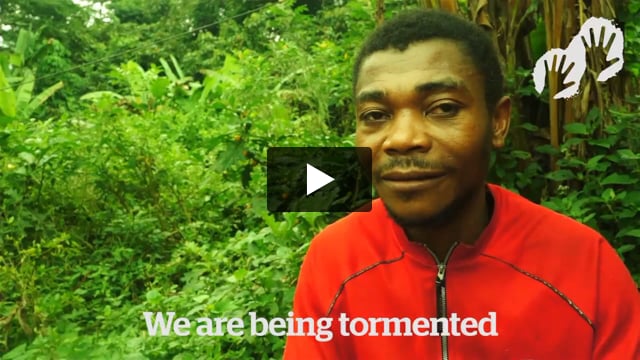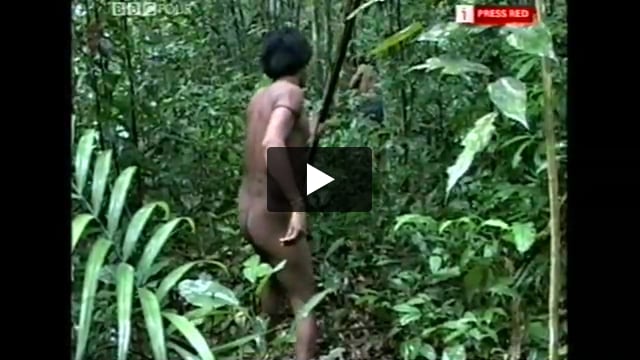Southeast Cameroon
A history of land theft
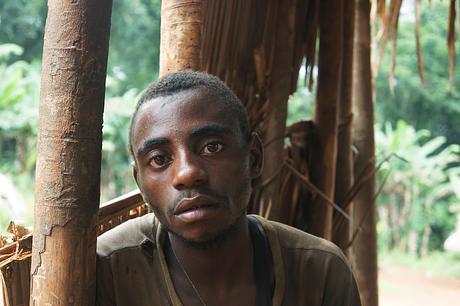
In southeast Cameroon much of the Baka’s ancestral land has either been designated as national parks – Boumba Bek, Nki and Lobeke – or awarded to safari hunting companies. The Baka have been stripped of all rights to it.
The Baka are theoretically allowed to enter areas of the parks, but in reality wildlife officers ignore this.
The forest used to be for the Baka but not anymore. We would walk in the forest according to the seasons but now we’re afraid. How can they forbid us from going into the forest? We don’t know how to live otherwise. They beat us, kill us and force us to flee to Congo.
Ango, Baka man
Torture and abuse
In some areas the situation is worse. Wildlife officers and the soldiers that accompany them on patrols routinely arrest, extort, harass and even torture Baka men and women. Many communities report that people have died from their treatment by anti-poaching squads.
A government official has openly admitted that torture is not only acceptable but necessary in the fight against poaching.
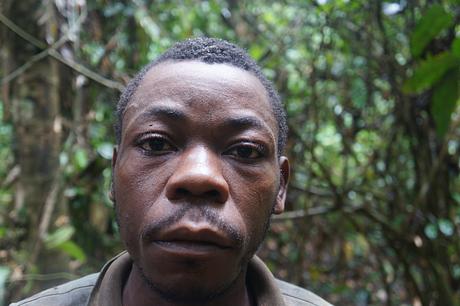
The wildlife officers started to beat us with their machetes, from sunrise to sunset that day. All over my body. They got others in the village together to sit down outside and stare at the sun, threatening them if they lowered their heads.
They made us carry their belongings to WWF’s base. And it was there that we nearly died from their beatings. Afterwards we couldn’t walk. It took all our strength not to die there on the road.
Sese, Baka man
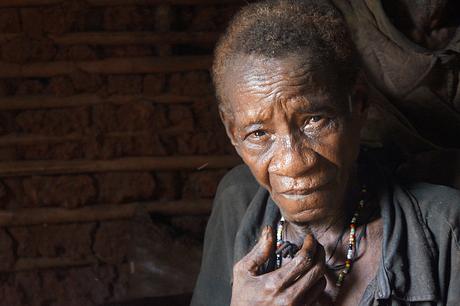
We came across the anti-poaching squad on a main road. They wanted to get information by torturing us. They beat a pregnant woman with a machete. They tackled me and I fell to the floor. They made us crawl on our knees for a great distance. Then they made us run as they followed us on their motorbikes, for more than a kilometer.
Modala, Baka man
The best conservationists
What time is it?
Honey is the ultimate forest food for the Baka, and they eat 14 different kinds of it. Learn how they describe the sounds bees make at different times of day:
makelo: at dawn
mongombela: in the early afternoon
mongombe: in the late afternoon
mojembo: in the evening
mongenja: at any time of day
Over generations, the Baka have developed their own sophisticated codes of conservation. These prevent overhunting, since Baka believe that successful hunting and gathering depends on sharing well, both among themselves and with their environment.
They have in-depth knowledge of forest plants – they use nearly 500 themselves and recognize many more – and of animal behavior. For example, Baka have more than a dozen words for the forest elephant, depending on its age, sex and personality.
Studies show that Baka work to improve the forest environment for their animal neighbors. For example, when Baka harvest wild yams, they often leave part of the root intact in the soil. This spreads pockets of yams through the forest, which are a favorite food of elephants and wild boar.
They know their lands, and what happens on them, better than anyone else. Yet Baka complain that they are unable to pass on these forest skills and values to younger generations, since the violent abuse they face makes them afraid to travel with their families into the forest.
We know when and where the poachers are in the forest. But no one will listen to us.
Tango, Baka man
Landless and suffering
Forced out of the forest, many Baka communities complain of a serious decline in their health. Living on the roadside, they are increasingly exposed to malaria and other diseases.
They can no longer harvest the medicinal plants they need to stay healthy, and are forced to rely on staple foods with a lower nutritional content. Alcoholism soars.
Now we are falling ill because of the change in our diet. Our skin doesn’t like the sun and life in the village. In the forest we are healthy and put on weight. Now no one has any muscles, everyone looks ill. We are forced to drink to forget our troubles
Atono, Baka man
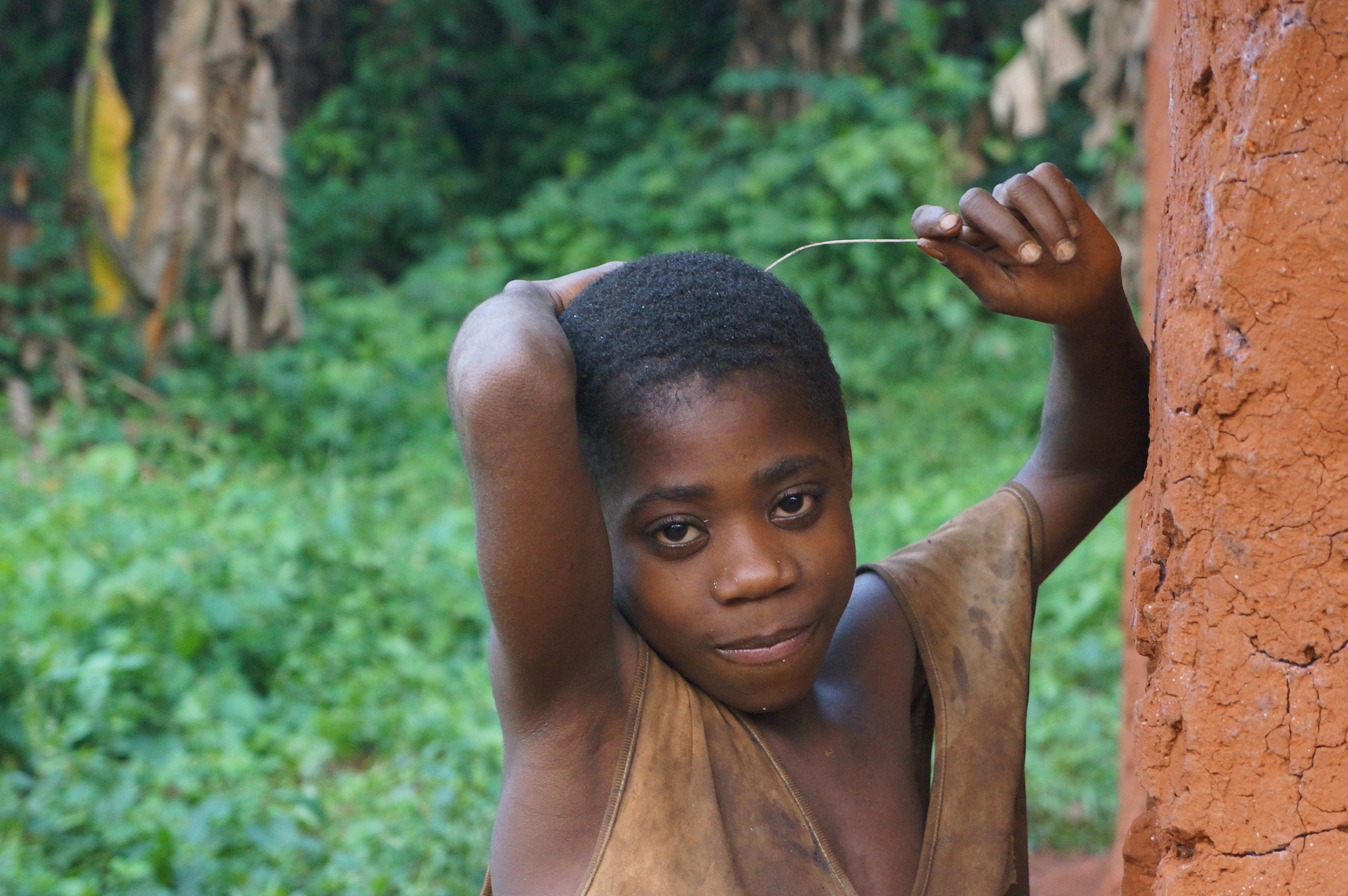
How you can help
The Cameroonian government relies on powerful conservation organisations, including the World Wide Fund for Nature (WWF), to equip its “anti-poaching” squads.
Please write to WWF to ensure that its work in the Congo Basin does not contribute to the persecution of the Baka.
The Baka names on this page have been changed out of concern for their safety.
Go back to tribal conservationists.
Sign up to the mailing list
Our amazing network of supporters and activists have played a pivotal role in everything we’ve achieved over the past 50 years. Sign up now for updates and actions.

